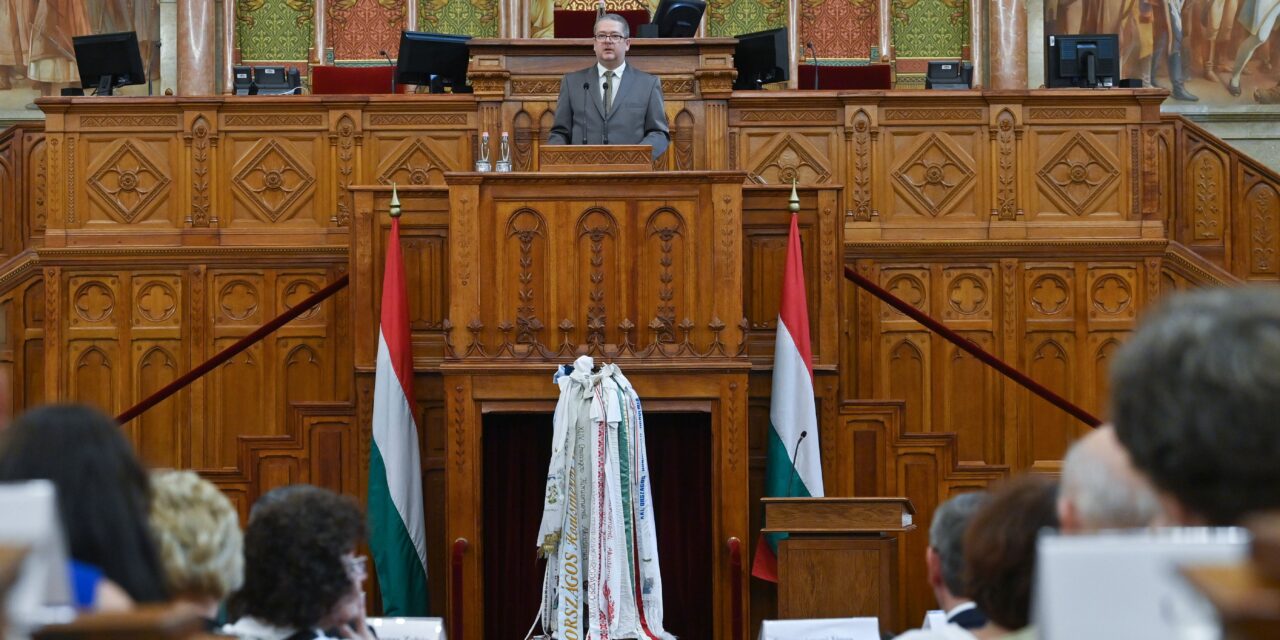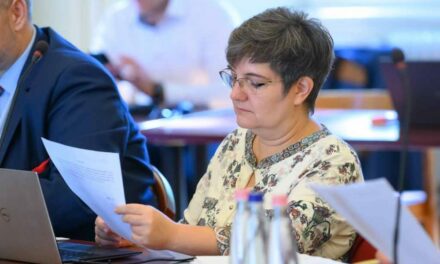The Nationality Association carries out vital work for the survival of the nation - emphasized the Deputy Secretary of State responsible for art and community culture of the Ministry of Culture and Innovation (KIM) on Monday in Budapest.
János Szentmártoni said at the opening of the 50th National Academy of National Studies, organized by the association, in the Parliament: when the movement started more than 50 years ago, the leaders and members were aware that they were serving "a well-disguised national cause that goes against communist internationalism".
"Because getting to know, preserving and passing on the homeland, history, traditions, and local values was a national matter even then," he emphasized, and then drew attention to the fact that there is no real patriotism without local patriotism.
The deputy state secretary called the movement's goal the education of patriots and daughters through the knowledge gained about the country, at the same time praising the fact that the movement was able to save many souls for the future of Hungary.
Speaking about the period of regime change, János Szentmártoni said: already in the first hours "the next danger, the new internationalism, was imminent". The luminaries of the new idea, "the professional Canaan builders", called it globalization and multiculturalism, he added.
He believed that against communism, which forced internationalism by force and weapons, the new idea "does not attack directly and with an open helmet, but rather erodes the fabric of society from below and, in the meantime, marginalizes those with a different opinion in an anti-democratic way."
According to his words, "we suddenly had to wake up to the fact that if we don't pay enough attention, we are almost imperceptibly deprived of all kinds of identity", including national, gender, cultural and local identity.
The Hungarians reject and resist these efforts, and in such circumstances the role of the nationalism movement and its power to preserve the nation is even more appreciated, he pointed out.
Sára Botond, the patron of Budapest, the patron of the event, expressed her thanks and respect for the work of the association, because with their activities they greatly contribute to strengthening the roots of Hungarianness.
"Knowledge of the country is key to understanding and appreciating our own country, its history, culture and traditions," he stressed.
The theme of the 50th National Academy of National Studies, which runs until Friday, is the 150th anniversary of the nation's capital – Budapest.
At the opening held in the Főrendiház meeting room, the most prestigious awards of the National Knowledge Association were also presented. The Bél Mátyás Notitia Hungariae Memorial Plaque was received by historian Róbert Hermann, teacher, publicist, writer, and Zoltán Szőts, teacher, historian-geographer, retired director of the Völgységi Museum, as well as historian Péter Tóth, archivist and Béla Debreczeni-Droppán, chief museologist of the Hungarian National Museum. . Gyula Mándli, former board member of the Association of Hungarian Librarians, received posthumous recognition.
MTI












